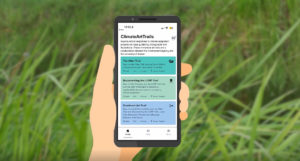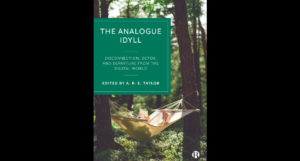Renowned author Sarah Moss set for public talk on her writing and the human body

Street sign of Calle de la Salud in Madrid (Spain), Raimundo Pastor, via Wikimedia Commons
An acclaimed novelist whose work has regularly explored themes of health and the human body will give a public interview next month for an international research project.
Sarah Moss – a three-time Wellcome Book Prize nominee – will reflect upon her career and the works of fiction and non-fiction she’s written, in conversation with the University of Exeter.
The event, which will be staged online and open to the public, is part of the outreach and engagement of the Reading Bodies project, which is analysing cultural narratives of illness in Europe in the 19th and 20th centuries.
Sarah will be interviewed by Professor Katharine Murphy, the project lead on Reading Bodies, and an expert in Hispanic Studies and Comparative Literature in the Department of Languages, Cultures and Visual Studies.
“Sarah Moss has written widely about the body, including in her recent memoirs, and is a great example of how writers reflect themselves and their experiences in literary form, while also maintaining a certain distance,” said Professor Murphy. “Many of her novels also reflect her medical research interests, so she represents a fantastic contemporary counterpart to the historical writings this project has examined.”
The interview will begin with a reading from Sarah’s memoir My Good Bright Wolf, before the pair discuss a variety of topics, including how the meanings we attach to health and illness can be communicated through different forms of writing.
Among Sarah’s other notable works are 2018’s Ghost Wall, which was nominated for the Ondaatje Prize and reflects upon medieval human sacrifice, Summerwater, and The Fell.
“I’ve been writing and thinking about literature and the body since my PhD on 18th-century travel writing,” Sarah said, “and especially in recent fiction and life writing as I explore what bodies say without and/or against words, and how literature can almost literally shape our bodies, especially in relation to girls’ reading and eating. My interest in writing, food and bodies wanders from 18th century ships to modern and historical kitchens, from human remains in museums to ghosts on the mountains.”
Reading Bodies: Narrating Illness in Spanish and European Literatures and Cultures (1870s to 1960s) is an 18-month research project funded by the Arts and Humanities Research Council. It has brought together academics from across the UK, Europe, and the United States of America to explore the interconnections between literature and medicine.
The project has already published an anthology of creative writing and artwork, co-written by health professionals, and reflecting upon mental exhaustion and burnout, and it will close in the autumn with a special feature issue of the Journal of Romance Studies.
“I hope our conversation with Sarah will prompt people to think about storytelling and how different interpretations of health, illness, and the body are expressed,” added Professor Murphy. “And how we can use literary narrative to shape and change perceptions, to encourage better understanding of people’s experiences. As our research reveals, literature does not just reflect pre-existing ideas, but inspires new ways of thinking.”
The event will take place on Wednesday, 7 May, from 4.00 to 5.00pm, and can be booked free of charge via Eventbrite.



